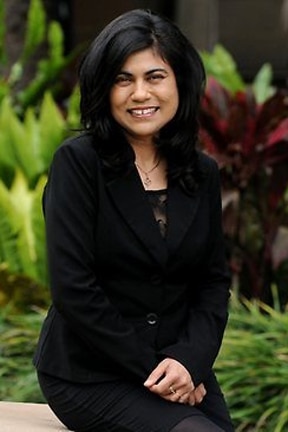A sustainable solution to Australia’s waste crisis
Professor Veena Sahajwalla, Director of the UNSW Centre of Sustainable Materials Research and Technology
In a time when climate change and the current "war on waste" are never far from the minds of consumers and governments, companies are increasingly making efforts to address their sustainability credentials and take concrete action. The crisis around the recent Chinese waste importation ban has prompted many Australian businesses as well as governments to question the adequacy of the various domestic waste and recycling processes and systems.
This is a time to really pause and reflect on how we as a society think about waste and recycling performance. The problem is that much of recyclable waste currently goes to landfill or incinerators where their future value is lost forever. However, rather than looking at waste having no value or use, in a sustainable society, we should look at it as a resource that can be transformed into something new and valuable. And this has been proved time and again at our laboratories at UNSW Sydney where our Centre of Sustainable Materials Research and Technology (SMaRT Centre) has developed what we call 'green' microfactories, in partnership with businesses such as Nespresso.

Professor Sahajwalla is determined to find a commercially viable solution to our current waste challenge
Traditionally, people think about recycling waste to create the same product: breaking down plastic to produce more plastic, for example. However, complicated products made of hundreds of different types of materials in our modern word – including electronic or e-waste such as computers and mobile phones – require us to think differently. If the computer no longer works, we must look at how we can extract and reform the extremely valuable different materials within those discarded devices. Traditional manufacturing often takes place in large and immobile factory sites near raw material supplies or in remote locations. But microfactories can operate on a site as small as 50 square metres and can be located wherever waste may be stockpiled. Costings show an investment in a microfactory can pay off in less than three years. Microfactories are virtually zero emission.
So sustainable solutions do not have to be large scale or complex. It is about starting out small, and thinking outside of the box. The SMaRT Centre is currently collaborating with various businesses and organisations to help transform this new recycling technology into a commercial reality. At the moment, general recycling systems in Australia are limited in terms of the items that they are able to capture. The processes that these systems use make them effective for capturing larger recyclables, such as bottles and cans, but unable to effectively sort and recycle small items, such as Nespresso capsules. To overcome this important infrastructure challenge, in 2010, Nespresso pioneered its own dedicated recycling system for used capsules – the first of its kind in Australia – making it as convenient as possible for offices and consumers alike to return capsules for recycling. For example, Nespresso's Bulk Collection box can be used to collect both in-home and Professional used aluminium Nespresso capsules from the office, making it easy for employees to contribute by bringing their Nespresso capsules in from home.

Recyclable aluminium, like that found in Nespresso capsules, is highly valuable
To support Nespresso in driving innovation throughout its sustainability program and solve the challenges of a complex global coffee supply chain, we are looking to help evolve how the collection and reformation of Nespresso's used aluminium coffee capsules can be done in a way that avoids relying on domestic recycling systems. Nespresso's dedicated recycling program separates its aluminium capsules from the used ground coffee. From there, aluminium is recycled back into the industry to make new products. Once the aluminium capsule and coffee grounds are separated, we are looking for ways to upcycle the raw metal to create new reusable, valuable products while keeping traditional smelting pollution and harmful environmental effects at bay.
Similarly, when Nespresso capsules are recycled currently, the coffee grounds are sent to a local composting plant. But in seeking to enhance this process, we are collaborating with national recycling organisation, Planet Ark, to find and develop new uses of coffee ground waste and trial it in potential manufacturing processes.

Professor Sahajwalla urges businesses, big and small, to take action in the war on waste
We are now also building our first general 'green' microfactory to take many of the recycled containers and materials put out in council bins, and other waste streams, to convert them into valuable materials such plastic filament for 3D printing, and glass panels for building products.
With awareness and desire to be more sustainable continuing to grow, Australians are looking to their government and business leaders to take action. To help inspire change and encourage support of sustainable ‘upcycling’ solutions, I urge business leaders to think about how rubbish is viewed and the ongoing role their company can play in helping to protect our environment long term. Much of what we throw out can in fact be 'reformed' as a type of renewable resource and therefore can attract a much higher value as a future manufacturing feedstock or material. Whether it's switching to greener energy sources, investing in start-ups dedicated to recycling waste in new ways, or merely ensuring the products and supplies in a workplace are sustainable, Australian businesses can collectively become the driving force behind the solution to the global waste and sustainability problem.

